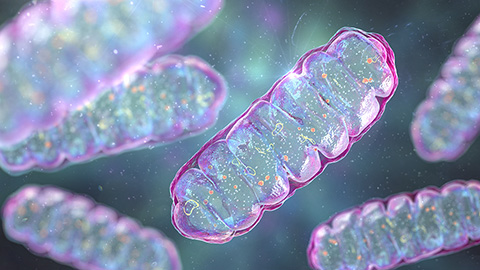How effective is the first shot of the Pfizer or Moderna vaccine?
Maybe you’ve postponed your second COVID-19 vaccine appointment, whether because of scheduling hassles or general reluctance. But how safe are you after just a single dose?

As an immunologist, I hear this question frequently – and the answer has changed as new genetic strains of the coronavirus become more common. By the beginning of July 2021, the delta variant had become the most dominant strain of SARS-CoV-2 circulating in the U.S.
The Moderna and Pfizer mRNA vaccines weren’t designed specifically to ward off the delta variant. While overall they still provide excellent protection after the full two doses, new research suggests a single dose provides less immunity against the coronavirus strains that are out there now than it did against the original strain.
Bottom line: Two shots are way better than one.
How well had the vaccines been working?
Soon after the Pfizer COVID-19 vaccine was authorized in December 2020, researchers in Israel found that a single dose was highly effective in one medical center’s thousands of vaccinated health care workers. A single dose reduced the rate of infection by up to 85% after four weeks post-shot compared to those who were not vaccinated.
This real-world finding was consistent with an analysis of Pfizer’s clinical trial data reported in 2020 in the New England Journal of Medicine. In that study, the 52% protection from the first dose included infections that occurred in the first 12 days after vaccination, when one would not expect the vaccine to have had time to generate protective antibodies.
Another real-world study of adults ages 70 and older conducted by Public Health England in early 2021 determined that a single dose of the Pfizer vaccine was 61% effective at preventing symptomatic disease 28 days after vaccination. Two doses increased effectiveness to 85%-90%.
So, what’s changed?
Essentially, it comes down to new variants. Scientists are particularly concerned about the delta variant because it appears to be especially contagious.
All of the vaccines for COVID-19 generate antibodies against the spike glycoprotein on the surface of the coronavirus. If you encounter the coronavirus after you’ve been vaccinated, these antibodies protect you by binding to the spike on its surface, preventing the virus from entering your cells to cause an infection.
The problem is that the delta variant can evade some – but not all – of the antibodies generated by the current vaccines.
How well do vaccines protect against delta so far?
It looks like the delta variant is relatively resistant to the anti-spike antibodies vaccination generates. This change is what makes it all the more important to get the second dose of an mRNA vaccine.
The first shot introduces your body to the virus’s spike protein so your immune system can start to produce targeted antibodies and immune cells. The second shot gives your body another chance to practice mounting that immune response against COVID-19. The second dose triggers the creation of more anti-spike antibodies, and these are more effective at protecting you because they bind more tightly to the viral spike if they encounter it.
In a study published in the journal Nature in July, researchers tested serum from the blood of 16 recent Pfizer vaccine recipients in France. After the first dose of the mRNA vaccine, serum from only two of the 16 vaccinated people neutralized the delta variant of the virus. The good news, though, is that after the second vaccine dose, serum from 15 out of 16 people neutralized the delta variant.
Out of the lab and in the real world, Public Health England has collected data on all symptomatic cases of COVID-19 in the country in which the coronavirus was genetically sequenced. Of the 1,054 cases of delta infection through the middle of May 2021, a preliminary analysis that has not yet been peer-reviewed found that one dose of the Pfizer vaccine was 33% effective at preventing symptomatic infection. Protection rose to 88% after two doses. Those protection levels for delta are lower than what they found for the older alpha variant: 51% effectiveness after dose one and 93% after dose two.
A smaller preliminary study from Canada that also has not yet been peer-reviewed identified a similar level of protection. In 165 people with delta infection, researchers found 56% protection from symptomatic infection with one dose of Pfizer and 87% with two. Importantly, researchers calculated that protection from hospitalization or death from delta after even a single dose was 78% for Pfizer and 96% for Moderna.
Am I protected?
You are well protected if you have completed your vaccination: two doses of the Pfizer or Moderna or the single-dose Johnson & Johnson vaccine. If you have had only one of the two required doses of the mRNA vaccines, then you should finish vaccination by getting the second shot. That will raise your COVID-19 protection from what might be as low as 33% better than an unvaccinated person up to 90%.
The picture is more complicated if you are immunocompromised. Studies have found that some immunocompromised patients don’t produce antibodies after vaccination. In these cases, some studies suggest that booster shots may offer hope, with a third dose of an mRNA vaccine triggering a protective antibody response.
For mRNA vaccines against COVID-19, the CDC recommendation remains the same: For Pfizer, get two doses 21 days apart, and for Moderna, get two doses 28 days apart. Sticking to the schedule and getting both doses means you will have very high levels of protection once your body has time to build immunity.
This article is republished from The Conversation under a Creative Commons license. Read the original article.
Enjoy reading ASBMB Today?
Become a member to receive the print edition four times a year and the digital edition monthly.
Learn moreGet the latest from ASBMB Today
Enter your email address, and we’ll send you a weekly email with recent articles, interviews and more.
Latest in Science
Science highlights or most popular articles

From humble beginnings to unlocking lysosomal secrets
Monther Abu–Remaileh will receive the ASBMB’s 2026 Walter A. Shaw Young Investigator Award in Lipid Research at the ASBMB Annual Meeting, March 7-10 in Washington, D.C.

Chemistry meets biology to thwart parasites
Margaret Phillips will receive the Alice and C. C. Wang Award in Molecular Parasitology at the ASBMB Annual Meeting, March 7-10 in Washington, D.C.

ASBMB announces 2026 JBC/Tabor awardees
The seven awardees are first authors of outstanding papers published in 2025 in the Journal of Biological Chemistry.

Missing lipid shrinks heart and lowers exercise capacity
Researchers uncovered the essential role of PLAAT1 in maintaining heart cardiolipin, mitochondrial function and energy metabolism, linking this enzyme to exercise capacity and potential cardiovascular disease pathways.

Decoding how bacteria flip host’s molecular switches
Kim Orth will receive the Earl and Thressa Stadtman Distinguished Scientists Award at the ASBMB Annual Meeting, March 7–10, just outside of Washington, D.C.

Defining JNKs: Targets for drug discovery
Roger Davis will receive the Bert and Natalie Vallee Award in Biomedical Science at the ASBMB Annual Meeting, March 7–10, just outside of Washington, D.C.

